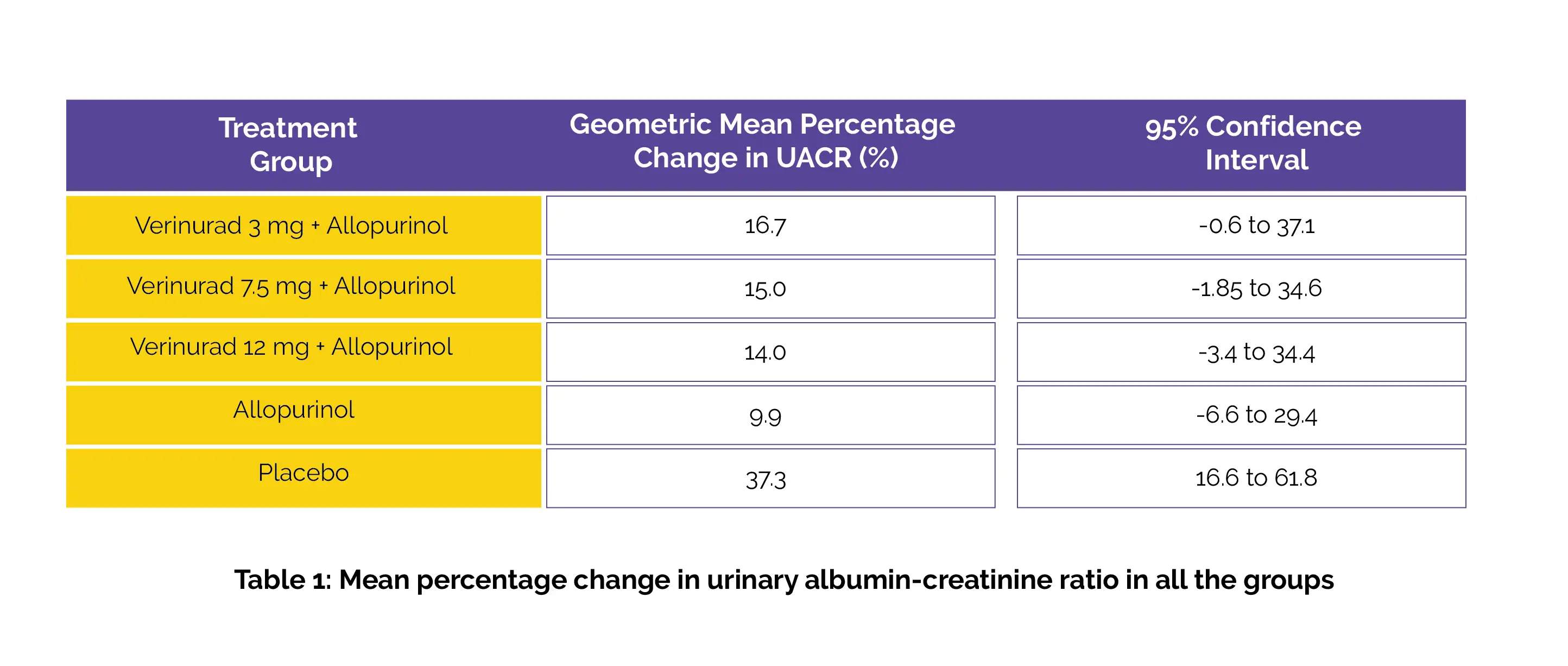Categories
Change Password!
Reset Password!


Combination of Verinurad (urate transporter 1 inhibitor) with Allopurinol (xanthine oxidase inhibitor) plays a role in managing serum urate levels, indicating the potential for managing hyperuricemia in CKD patients.
A combination of Verinurad and Allopurinol proved to have noteworthy reductions in serum urate levels but didn't significantly reduce the urinary albumin-creatinine ratio (UACR) or slow the decline of estimated glomerular filtration rate (eGFR), suggested the outcomes of a randomized controlled trial published in the Journal of the American College of Nephrology.
Hyperuricemia (high levels of uric acid) is known to raise the risk of cardiovascular issues and CKD. This research was performed by Hiddo J L Heerspink et al. to investigate the albuminuria-lowering effects of Verinurad when used alongside Allopurinol in patients suffering from CKD and hyperuricemia.
Adults with CKD were assigned to one of five groups: Placebo (Group 1); Placebo + Allopurinol 300 mg given daily (Group 2); Verinurad 3 mg + Allopurinol 300 mg given daily (Group 3); Verinurad 7.5 mg + Allopurinol 300 mg given daily (Group 4), or Verinurad 12 mg with Allopurinol 300 mg given daily (Group 5). The change in UACR from the starting point to 34 weeks (primary outcome) and serum urate and eGFR at both weeks 34 and 60 (secondary outcome) were assessed.
Overall, 861 adults with CKD participated in the study (average age 65 years, mean eGFR 48 ml per min per 1.73 m²; median UACR 217 mg per g). At the 34-week mark, the geometric mean percentage change in UACR showed no significant differences between the treatment groups (Table 1).

Changes in UACR and eGFR from baseline to 60 weeks also did not significantly vary among the groups. Despite these findings, this combination did result in a dose-dependent reduction in serum urate levels compared to the placebo. Additionally, similar rates of serious adverse events were observed in all the groups.
Further research is needed to fully comprehend the likely advantages and constraints of using Verinurad with Allopurinol, as concluded.
Journal of the American College of Nephrology
https://journals.lww.com/jasn/abstract/2024/05000/combination_treatment_with_Verinurad_and.10.aspx
Combination Treatment with Verinurad and Allopurinol in CKD: A Randomized Placebo and Active Controlled Trial
Hiddo J L Heerspink et al.
Comments (0)